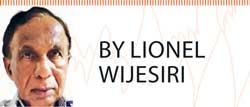12 Jun 2017 - {{hitsCtrl.values.hits}}

 In business, more than anywhere else, leaders are faced with moral and ethical decisions daily. Not only are leaders faced with questions between right and wrong but also between right and right. Leaders have all experienced situations in which their professional responsibilities unexpectedly come into conflict with their deepest values. They are caught in a conflict between right and right. And no matter which option they choose, we feel like we’ve come up short.
In business, more than anywhere else, leaders are faced with moral and ethical decisions daily. Not only are leaders faced with questions between right and wrong but also between right and right. Leaders have all experienced situations in which their professional responsibilities unexpectedly come into conflict with their deepest values. They are caught in a conflict between right and right. And no matter which option they choose, we feel like we’ve come up short.
Research on moral standards and business ethics is sparse. The morality and ethics of the modern workplace are a product of the minds of the leaders, policies they establish and behaviour they model. There seems to be an increasing sense of distrust of leaders’ motives as they are seen to serve the owners and themselves, rather than the employees, community, environment or even the customers!
Such erosion of trust may be epidemic. One bad apple spoils the barrel. When the corporate culture is undermined by distrust, the original excitement and enthusiasm about a job and commitment to an employer turns to alienation and disengagement. When this happens, work suffers.
Responsibility
Leaders have a responsibility for creating trust and cultivating cultural values. There is rich opportunity here for leaders to appeal to more than just the material rewards. Great leaders, like great companies and countries, create meaning, not just money.
The aim is to operate organisations in such a way that they achieve stated goals and do so in a manner that is consistent with the higher values of the organisational community. When employees have no clear picture of the moral or ethical stance of the organisation, they tend to operate at the lowest perceived level.
Creating and promoting institutional integrity becomes one of the most important functions of leadership. Moral and ethical stances need to be consistently reiterated and clarified. One of the most pervasive issues in the Sri Lankan workplace today is the justice of corporations paying millions in bonuses to executives and haggling over few rupees with salaried employees. Until this issue is addressed and adjustments made, leaders will have a hard time rebuilding trust and credibility in organisational cultures.
An analysis of the relationship between ethical behaviour and effective leadership reveals that it is a matter of choosing both the ends and the means. A business enterprise must be profitable in order to survive. Service organisations must satisfy consumers’ expectations. The ends are the very reason for existence of the enterprise.
At the same time, the means by which they achieve those ends are increasingly important. Placing value on short-term gains at the detriment of long-term results ends in disaster. The demise of a company is a tragedy because it affects the lives of families. Families depend on the responsible decisions of business leaders. At the core of all business decisions are moral and ethical principles. Failure to (clearly state and) support and withhold high standards has consequences.
There is no doubt that these are turbulent times. There are powerful economic, political, social and cultural forces at play in our lives today that may lead us to feel powerless to oppose them. It may seem easier to just go along rather than to speak out. Each person must weigh alternatives and make choices in light of personal values and goals but also with consideration to organisational and professional success. Decisions have to be made that are optimal and that we can live with in the long run.
There will be an increased emphasis for ethical responsibility in leaders if organisations are to thrive.
How to solve an ethical dilemma
Peter Drucker refers to the Hippocratic Oath of 2500 years ago when he writes about business ethics. A professional can promise he or she will “not knowingly do harm”. He states that it is not an easy rule to live up to, but that “its very modesty and self-constraint make it the right rule for the ethics that managers need, the ethics of responsibility”.
Given that ethical and moral dilemmas present themselves on a daily basis, what do the experts say are the steps for solving an ethical dilemma? Life and business are rarely simple and between right and wrong there is a lot of grey area. How does one make an ethical decision?
There are two major approaches that philosophers use in handling ethical dilemmas. One is to focus on the practical consequences of what we do and the other focuses on the actions themselves and weighs the rightness of the action alone.
The first school of thought argues that if there is no harm, there is no foul. The second claims that some actions are simply wrong in and of themselves.
Here is a three-step process for solving an ethical problem:
Step one: Analyse consequences
Who will be helped by what you do? Who will be harmed? What kind of benefits and harms are we talking about? (Some are more valuable or more harmful than others: good health, someone’s trust and a clean environment are very valuable benefits) How does all of this look over the long run as well as short run?
Step two: Analyse actions
Consider all of the options from a different perspective, without thinking about the consequences. How do the actions measure up against moral principles like honesty, fairness, equality, respecting the dignity of others, people’s rights?
Do any of actions ‘cross the line’?
If there’s a conflict between principles or between the rights of different people involved, is there a way to see one principle as more important than the others? Which option offers actions that are least problematic?
Step three: Make a decision
Take both parts of your analysis into account and make a decision. This strategy at least gives you some basic steps you can follow.
Common dilemmas
The following are few common dilemmas a leader normally faces.
Dilemma 1: Is my career worthwhile?
Does this career meet my passion, my skills and future aspirations? Will my chosen career, company and assignment contribute to human welfare or detract from it?
Dilemma 2: Work vs. family
What balance should I strike between my commitment to work and to my family ... work excessive hours or to limit my work to achieve a balance with family priorities?
Dilemma 3: Going along with crowd
Am I going to be a ‘team player’ who goes along with whatever the group is doing or someone who actively resists the uglier side of group behaviour? Some of the values and behaviours are not attractive and may even be improper or illegal.
Dilemma 4: When leaders mislead
What should I do when confronted by shoddy behaviour by my own leaders? Some leaders’ success causes them to believe they are above the law. Some leaders have weak values and succumb to the temptation to cut corners.
Being a change agent
Should I initiate positive change in my organisation? Sloppiness about client privacy may have been a modest problem in the past, but now, it has become a much more serious problem.
Dilemma 6: Careers and common good
I must decide whether to look beyond their immediate organisation and apply their professional skills for the benefit of humanity. Accountants have long helped non-profits, including churches and governments, in their drive for accurate financial reporting and adequate controls.
(Lionel Wijesiri is a retired corporate director counting three decades of senior management experience. He is now an independent consultant and a freelance journalist. He may be contacted on [email protected])
07 Jan 2025 7 hours ago
07 Jan 2025 7 hours ago
07 Jan 2025 8 hours ago
07 Jan 2025 07 Jan 2025
07 Jan 2025 07 Jan 2025